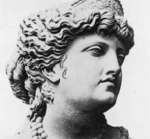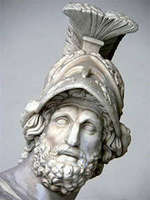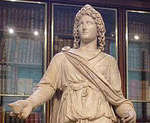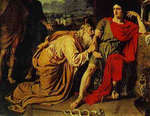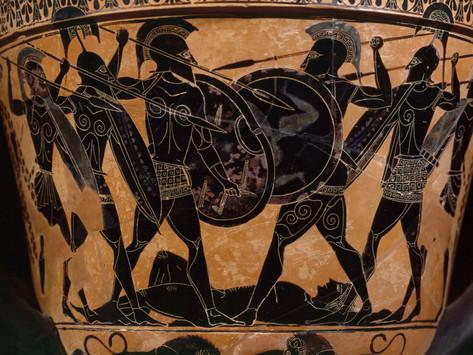
Oenone
In Greek mythology, Oenone was an oread nymph (a nymph of the mountains) who lived on Mount Ida in the region of Phrygia. Her father was the river god Cebren. One day, Paris, son of Priam and Hecuba and prince of Troy, worked in Mount Ida as a shepherd, because his father had abandoned him when he was an infant, due to a prophecy saying he would cause the destruction of Troy. Paris met Oenone and fell in love with her; they got married and had a son, Corythus.
Paris later abandoned Oenone and went to Sparta, in order to kidnap Helen, wife of Menelaus, thus triggering the events that led to the Trojan War. Oenone predicted that the Trojan War was imminent, and, furious to have been abandoned, sent her son in order to show the Greeks how to sail to Troy. A different version of the story has it that Corythus was sent to cause a rift between Paris and Helen, but Paris, not recognising his son, killed him.
Oenone Q&A
Link/Cite Oenone Page
Written by: The Editors of GreekMythology.com. GreekMythology.com editors write, review and revise subject areas in which they have extensive knowledge based on their working experience or advanced studies.
For MLA style citation use: GreekMythology.com, The Editors of Website. "Oenone". GreekMythology.com Website, 27 Sep. 2015, https://www.greekmythology.com/Other_Gods/Minor_Gods/Oenone/oenone.html. Accessed 26 April 2024.

